In this week’s article, we bring you a reflection on some concepts that are part of the decision-making process of the syntropic farmer, and that usually leaves room for different interpretations.
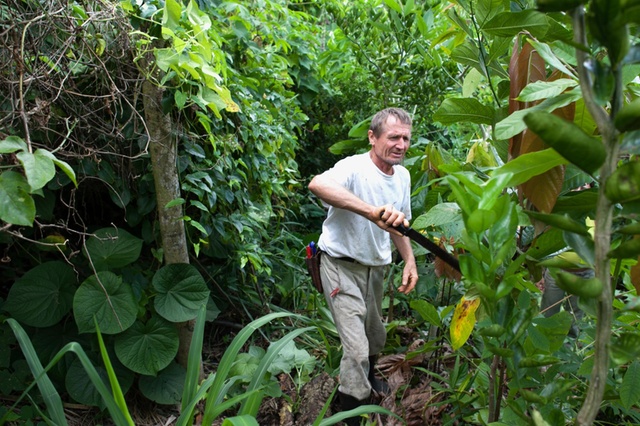
Besides the practical applications that come from the understanding of natural succession, stratification, and life dynamics, there are also other essential categories systematically referenced by Ernst Götsch in his texts, lectures, courses, conferences, consultancies, and in his personal life. One of these categories would be “unconditional love” that joins the idea of “cooperation” as opposed to “competition”. For Ernst, there is no competition in nature. Except for us modern men and the animals we domesticated, all inter- and intraspecific relations occur, in his view, unilaterally moved by unconditional love and cooperation. Far beyond the common sense of motherly love, or love for other people (of the Judeo-Christian heritage), unconditional love expands in the realm of the Syntropic Agriculture for love between different species, love for abiotic systems and even love for biogeochemical cycles. For humans, who experience reflexive deliberation, Ernst Götsch suggests – always associated with the principle of unconditional love and cooperation – the application of the categorical imperative of Kant, according to which one must act in such a way that his actions can be immediately elevated to universal laws – that is, an intentionalist ethical orientation is the ultimate guideline and measure of the attitudes of the syntropic farmer.
For Ernst, this guideline is valid for all the interactions he maintains as a farmer, that is, in his relation “to the soil, to the plants, to the animals, as well as to the water and nutrients cycle.” At first, this would be similar to biophilia (love for life and living systems), a concept proposed by the psychologist Erich Fromm in 1964. But it is divergent, however, especially from what was written in the 1980s by the biologist and theorist Edward Wilson in “The Biophilia Hypothesis”, according to which human beings would have a psychological tendency of filiation to everything that is alive, or a love innate by nature. In the latter case, love would be explained by a genetic inheritance that would connect us with other forms of life. It means we ‘d love not because these other lives would have value in themselves, but because an evolutionary connection that would justify and impel us to do so. The love that Ernst Götsch refers to is much less anthropocentric, and the connection is more like an evidence than an explanation.

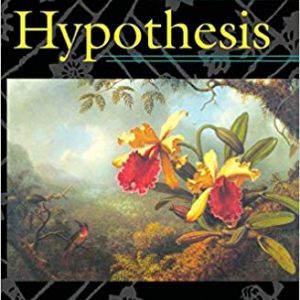
The supposed semantic simplicity of the idea of unconditional love conceals a serious displacement of a fundamental category of modern Western culture: individualism. The individual or personal interest is entirely subjected to the view of the ecosystem functioning. Carrying the premise of syntropy – that is not entitled to negotiations or bargaining – love is guided by the realization of being part of the ecosystem’s strategy to increase energy, even if it means, at a certain stage of development, the suppression of an individual – be it a weed, a fruit-tree or an animal.
The unconditional love expressed in the inherent dynamics of an ecosystem means that species that have already “fulfilled their function gracefully subject themselves to be transformed by natural processes.”
From his writings and for being close to Ernst, it is not difficult to see that he does not give much concern to the explanation of unconditional love because of another axiom of his thinking: the understanding that we humans are only part of an intelligent macro-organism. “[We act and behave as if] we are ‘the intelligent species’. Or just, modestly, are we part of an intelligent system?”, he says.
This line of thinking invariably refers to the Gaia Theory, proposed by the English chemist James Lovelock (1979). Lovelock was one of the first to assert in the early 1970s that life as a whole optimizes the environment for its own use. According to the Gaia Theory, aspects of atmospheric gases, rocks, and surface water would be regulated by the metabolism and transformation of living organisms. Thus, temperature, acidity, and salinity would also be mediated by the action of life, which would act in the homeostatic control of the planet as a whole.
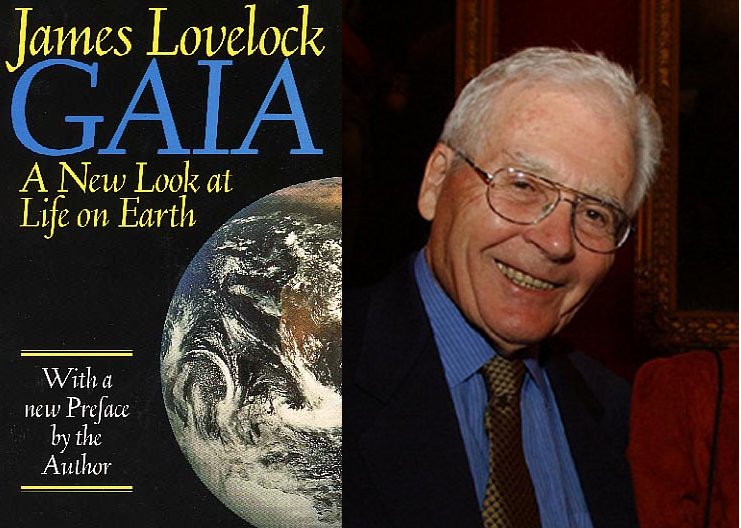
However, the idea that Earth is a single organism – a shortcut usually visited by both allies and opponents of the Gaia Theory – is, in fact, an unfair reduction, according to Lynn Margulis (2001), Lovelock’s collaborator in Gaia Theory and responsible by the serial endosymbiotic theory – which implications range from the understanding of the planetary ecosystem to evolutionary processes. More accurate, she said, would be to say that “the Earth, in the biological sense, has a body maintained by complex physiological processes.” Margulis also tried to alert Lovelock to the deification risks that the use of the Gaia name – earth goddess in Greek mythology – could imply. If the suggestion was considered, it was not in time to prevent the incorporation of the term by the mystical current of the environmental discourse of that time, which saw in the materialization of a “Mother Earth” the perfect alibi for its agenda. This interpretation may have contributed to the mistrust Gaia Theory raised in the traditional academic scene, and the consequent delay in engaging into a more cautious appreciation of its potential. Currently, in the imminence of a global climate and environmental collapse, these discussions are revisited and gain new strength with Bruno Latour, Bruno Clarke, Timothy Lenton, and others. Many of the criticisms of this theory are based on the interpretation of the Darwinian theory of the selection of species through competition. The survival of the fittest would be incompatible with the idea that living beings, by their metabolism, modify the environment in such a way that the conditions for their very existence cease to exist and open space for new species to thrive. However, there are examples of exactly that in the formation of the atmosphere and in the ecological succession. The fact is that life is a planetary phenomenon and, contrary to the odds, the surface of the planet has been alive for at least 3.7 billion years, maintaining its dynamics with abiotic systems.
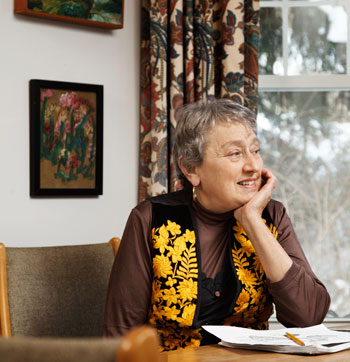
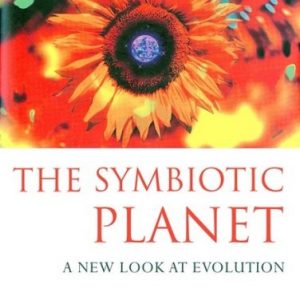
It is not by chance that Ernst Götsch’s views suffer from the same mistrust and fall victim to the same allegations as the Gaia Theory. According to Ian Enting’s analysis, to soften the academic embarrassment, some analyzes proposed a certain relaxation of the Gaia Theory. But this only weakened it to the point of making it scarcely distinguishable from the Earth System’s studies, wasting its potential. On the other hand, without institutional constraints, Ernst Götsch’s vision of agriculture still dares a little more in appreciating the dynamics of life.

The conceptual framework of Syntropic Agriculture, therefore, completely excludes the ideas of competition and substitutes it with the conception of cooperation and unconditional love. As if it was not hard enough for our science to incorporate concepts such as love into the interpretation of ecosystems, Ernst proposes another category: inner-pleasure – which would be the result of acting according to the understanding that “each individual, of every generation, of all species, appears equipped to perform its tasks and fulfill its functions moved by inner-pleasure”. Subject to misinterpretations, inner-pleasure can mislead to hedonism. However, once again, as in the case of unconditional love, the individual is not at the center. Instead, the syntropic tendency of life is. The consequence of this detachment is that inner-pleasure is more related to the idea of belonging to the macro-organism than to personal satisfaction itself. Considering that the native language of Ernst Götsch is German, we suspect that we could find clues in the subjective values we normally carry from our linguistic matrix. When asked what the translation of inner-pleasure into German would be, Ernst pointed out “Inneren Antrieb,” therefore closer to the ideas of “drive”, “urge” or “impulse”. In this sense, a farmer’s work of managing an ecosystem and at the same time favoring syntropic flows of energy would provoke joy. In addressing the concept of syntropy applied to psychology, the Italian researchers Ulisse di Corpo and Antonella Vannini (2014) came to similar conclusions in their experiments, mentioning the ideas of purpose and feeling of achievement as opposed to “feelings of emptiness, emotional pain , anxiety and distress “- these experienced as a result of actions contrary to syntropy.
From this brief revision of principles, we infer some of the reasons why Syntropic Farming, despite being agronomically efficient, still finds it difficult to claim its citizenship in the scientific world. In addition to the concepts discussed so far, there is still the teleological issue, often referred to as a supposed weakness. Affirmations of Ernst Götsch such as “life is a strategy the planet Earth created to fulfill its function” may seem to suggest immanent predestination, a causal purpose, which would conflict with all the secular effort to liberate science (and the individual) from the medieval Christian thinking. The modern or classical scientific mentality has since assumed rationality and objectivity as a definite promise of autonomy and freedom (which was consistent with its time, the bourgeois revolutions of the XVII and XVIII centuries). As in a kind of trauma, this rupture would leave long-lasting marks and, even with the evolution of discussions about contemporaneity and complex systems (such as Prigogine and Morin), the scientific debate in Social Sciences and especially in Natural Sciences still resents in the presence of a teleological language, associating it with ideas of purpose and finality. Words such as “strategy” and “tactics”, for example, have been expressly misrepresented, including in scientific journal editorials: “Terms such as ‘strategy’ and ‘tactics’ are philosophically questionable when applied to plants and inferior animals, and should be left to politicians, military and sports”, wrote the researcher Paul Kramer in 1984.
On the other hand, important philosophy contributions have influenced a self-reflection of Natural Sciences as a whole, revisiting teleology with another perspective. Not the Aristotelian influence, which is compatible with the Greek ideal of a finite and orderly cosmos, and even was incorporated and distorted by Islamic and Christian Arabic cultures into a transcendental teleology – which makes it forgiving the later resentment illustrated by the irony of Kramer’s editorial. Instead, it is a tradition that recovers the Kantian understanding that purpose appears as a regulating principle we use to access knowledge about the natural world. It would not be a constitutive attribute of nature, but a presupposition adopted to solve our practical questions of knowledge.
The identifiable teleology in Ernst Götsch’s thinking seems to us to be more affiliated with the line that moves away from a creationist metaphysics and adopts the observation of nature (or the Kantian reflective judgment) associated with the relations of cause and effect (empirical determinism) as a mean to propose the establishment of hypotheses. As Syntropic Farming invariably works with polycultures (meaning complex interactions), and with species that have life cycles as distinct as lettuce (short) and an oak-tree (long), the teleological tailing can indeed suggest an imperative trajectory. But it also could be considered as an “everything goes as if,” without compromising the operationality, as the sense of purpose in Kant. Based on Ernst Götsch talks and writings, these ideas seem to have influenced him.
There are other views, especially in physiological and reproductive ecology, where terms such as strategy and tactics are widely used. In studies about the role of cooperation in evolutionary mechanisms, ideas such as altruism or group well-being are also regarded. All of them, to a greater or lesser extent, find opponents who question their ultimate purpose-driver.
It is curious to note that selfishness and individual well-being present in the Theory of Evolution by natural selection are not questioned in the same way. It’s part of our culture to believe that all species compete to survive. People take it as a natural process and an essential lesson to carry in life. What if it is not? What if we re-interpret the purpose of life on earth disregarding these concepts? It is possible, and it might offer some tools to rethink our behavior and stop our brutal relationship with nature.
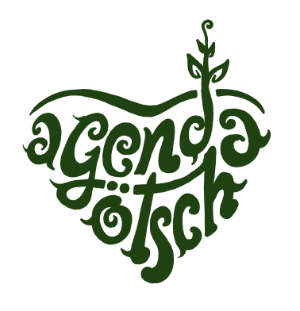

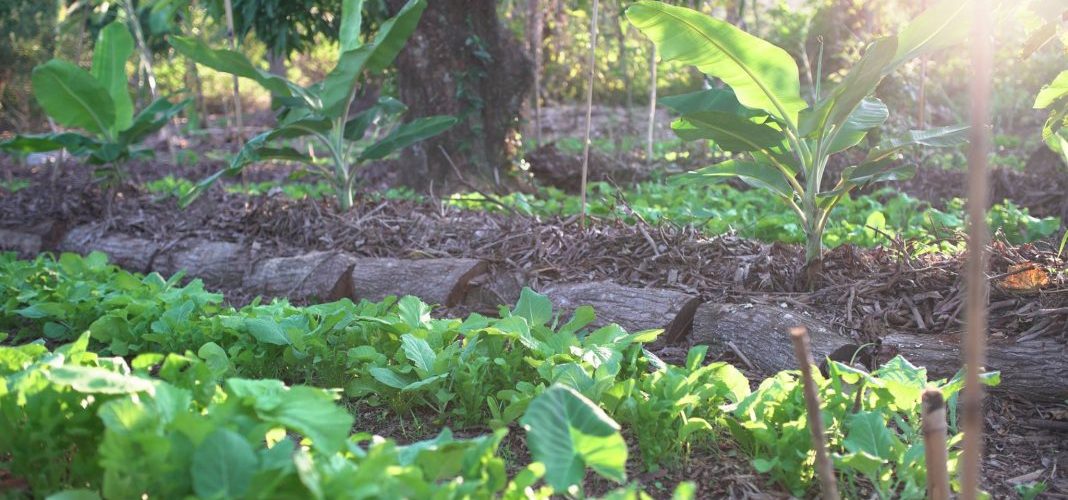
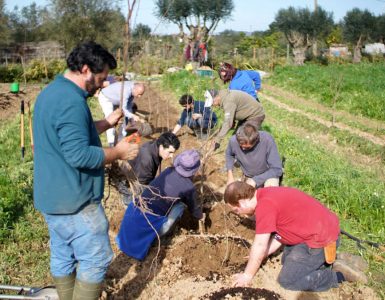
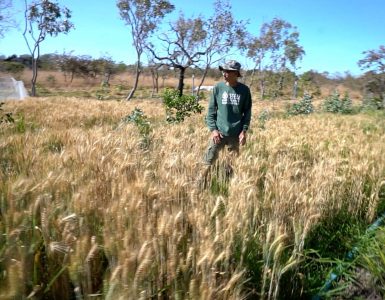
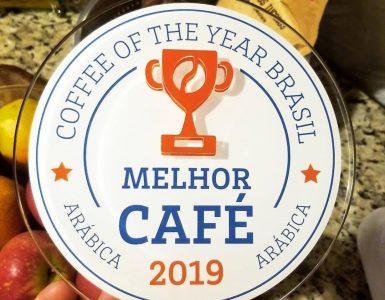

Quando algo realmente nos faz sentido, poderíamos ignorar as interpretações possíveis e ficar só com a realização. Percebo que automaticamente ocorre uma “tradução” disso que faz sentido de acordo com o que sou aqui e agora, por isso, quando colocado em palavras, no nosso limitado vocabulário, inevitavelmente suscitará diferentes interpretações. Não necessariamente serão interpretações erradas, portanto (talvez sejam momentos diferentes). Pra mim, quando Ernst fala em cooperação e amor incondicional, soa como uma deliciosa música que preenche todo meu corpo e me faz levitar – a compreensão é total, mas não tenho explicação, simplesmente “me serve”, faz sentido. O impulso para colocar em prática é quase mais forte que eu. Se não fosse o exemplo e as palavras do Ernst, eu ainda estaria procurando por esse sentido (na prática). Logo, também adoro questionar e buscar explicações, adorei essa discussão, excelente artigo da Dayana. Obrigado!
A respeito, justamente, dessa “dificuldade de reivindicar sua cidadania no universo da ciência”, sugiro a leitura do livro “A memória biocultural – a importância ecológica das sabedorias tradicionais”, de Víctor Toledo e Narciso Barrera-Bassols, da editora Expressão Popular. É mais uma porta que abre para essa necessária discussão, para que a conquista de um lugar ao sol na ciência não acabe como na agricultura orgânica: compartimentada, vista em suas partes isoladamente, que mesmo quando “integrada” não traz em si essa mudança de paradigma essencial apresentada nesse artigo. Ou seja, agricultura orgânica no mundo prático da ciência tornou-se mera substituição de receitas, pois na cabeça e no coração nada mudou. O que falta ainda? Esse livro sugere algumas coisas.
Aproveito para sugerir uma leitura que, curiosamente, estou relendo neste momento, é o livro “The Findhorn Garden Story / Findhorn Press 2008”, uma verdadeira história de cooperação! Ah, inevitável não lembrar também do trabalho da brasileira Sheila Waligora, que nos coloca numa outra perspectiva de percepção e relação com as criaturas deste planeta.
Abraços!
Cristiano k. Hickel
Fascinating discussion Dayana thank-you! It has prompted me to order Prigogine and Stengers’ book The End of Certainty, which looks like it might give some context for the retrocausality aspect to Fantappie’s mathematical concept of syntropy. As you point out there is a lot of scientific discomfort with teleology and purpose. The forthcoming representation of Ernst’ principles looks very interesting. I look forward to reading more of your writing 🙂
Muito interessante o artigo! Da forma como interpreto, a narrativa e linguagem adotadas pelo Ernst (regenerativa, intuitiva, sistêmica) desafia uma narrativa mais básica que ainda é (embora cada vez menos) a dominante na ciência, política, economia. Trata-se da narrativa reducionista e mecanicista, como nomeada por Fritjof Capra, ou da narratiuva da separação, como nomeada por Daniel Wahl.
Como o próprio artigo ressalta, a narrativa da competição não é questionada na ciência e parece ser culturalmente aceita como natural. Mas é uma interpretação bem particular da teoria da evolução de Darwin que serviu para consolidar uma noção de economia e sociedade que se tornou dominante no século passado (e ainda o é agora): a narrativa do homo economicus, em que a complexidade da condição humana é reduzida a seres essencialmente egoístas, calculistas e movidos por maximizar o interesse próprio. Embora seja uma simplificação grotesca, tem servido para sustentar “consensos” econômicos e políticos há décadas, e está tão entranhada em nossa forma de pensar que temos dificuldades de questioná-la mesmo quando os modelos construídos a partir dela falham (como na crise de 2008).
Acho interessante explorar como a narrativa usada pelo Ernst ressoa com linhas de pensamento mais sistêmicas e holísticas tanto na ciência (como o citado Lovelock, mas também a visão sistêmica de Capra e a Ecologia Profunda de Arne Ness) quanto na economia (como o novo paradigma da “rosquinha” proposto por Kate Raworth ou a “prosperidade sem crescimento” explorada por Tim Jackson).
Exatamente Lucio, os desdobrametos podem ser muitos e as consequências, no mínimo, inspiradoras. Agradeço muito sua contribuição!
Excelente revisão, Dayana!
Como você mesma disse, é uma tarefa árdua interpretar as ideias do Ernst à luz de certos contornos hegemônicos da ciência, mas, confesso que pra mim também tem sido muito prazeroso e inspirador. Eu já havia refletido um pouco sobre o “amor incondicional”, e inclusive fiz umas anotações lá no seminário em Brasília, ano passado. Pela dificuldade em elaborar algo consistente, fiquei ansioso quando esse texto foi publicado! A surpresa boa foi perceber a ligeira semelhança com o que eu tinha vislumbrado naquela oportunidade. Eu pensei mais ou menos assim: “Acho que o fenômeno da cascata trófica (como aquele famoso caso dos lobos de Yellowstone) é um bom exemplo para explicar as ideias do amor incondicional e do prazer interno, porque a existência ecologicamente equilibrada de vários organismos, e em constante interação com fatores abióticos, desencadeou benefícios sistêmicos (verificados em vários parâmetros), que, em última instância, afetaram positivamente até mesmo rios, atmosfera, oceano, e assim por diante”. Entendo que você foi muito precisa ao falar da “estratégia de incremento de energia no sistema”, ainda que com a supressão de determinados indivíduos, e da noção de pertencimento ao macro-organismo. Parabéns, tô contigo nessa!
Tenho percebido também um potencial em discutir a agricultura sintrópica na perspectiva que opõe antropocentrismo e ecocentrismo, além poder trazer uns elementos da ecologia profunda.
Alguns dias depois de ler esse texto, eu assisti o documentário “Symbiotic Earth: How Lynn Margulis Rocked the Boat and Started a Scientific Revolution”, e fiquei impressionado com a quantidade de referências valiosas ao debate que estamos tendo aqui. Você e o Felipe já viram? Além do documentário, na época da pré-estreia ainda eu recebi um guia de estudos para acompanhamento, com umas 80 páginas que sintetizam os capítulos do vídeo, e recomendam mais uma série de livros e artigos científicos para fundamentação. Posso lhe enviar esse material!
Grande abraço!
Saudades.
João, querido amigo, que prazer ler seu comentário! Lembro que em Brasília você me falou desse documentário da Margullis e desde então fiquei ansiosa para assistir, mas ainda não tive a oportunidade. Por favor, me mande sim esse guia de estudos. Quanto mais a gente lê, mais percebe que tem muito mais por trás. Essa é a alegria e a angústia de estudar, não é mesmo?! Com relação à cadeia trófica, isso leva àquela outra proposta do Ernst: a de que a fome é um meio para os seres realizarem sua função… esse é outra “caixinha” da agricultura sintrópica esperando alguém tanto capaz quanto ousado o suficiente para abrí-la…o que me diz? Grande abraço!
Olá João, me interessei por este material citado. Você poderia me enviar também? Meu email é rodriggoramos@gmail.com
Um abraço!